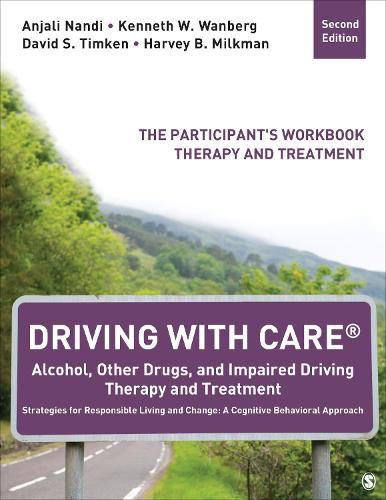Readings Newsletter
Become a Readings Member to make your shopping experience even easier.
Sign in or sign up for free!
You’re not far away from qualifying for FREE standard shipping within Australia
You’ve qualified for FREE standard shipping within Australia
The cart is loading…






Driving with CARE Therapy is a sequel to the Driving With CARE Education program. It is designed for individuals who show definitive signs of AOD misuse and problems, with a higher arrest BAC and/or who have had prior DWI convictions. The core DWC Therapy curriculum is a 21-session, 42-hour structured program with extended treatment based on the degree of involvement in DWI behavior and level of AOD abuse. Extended treatment can vary from an additional 10 hours to as much as 44 hours. The treatment protocol intensifies the focus on the three areas of cognitive-behavioral learning and change: 1) self-control over feelings and emotions and behavior outcomes; 2) developing strategies and skills to manage and improve family and interpersonal relationships; and 3) developing strategies and skills to increase responsible behavior in the community. There is enhanced focus on understanding personal pathways to negative AOD outcomes and impaired driving, along with strengthening recidivism and relapse prevention skills.
$9.00 standard shipping within Australia
FREE standard shipping within Australia for orders over $100.00
Express & International shipping calculated at checkout
Driving with CARE Therapy is a sequel to the Driving With CARE Education program. It is designed for individuals who show definitive signs of AOD misuse and problems, with a higher arrest BAC and/or who have had prior DWI convictions. The core DWC Therapy curriculum is a 21-session, 42-hour structured program with extended treatment based on the degree of involvement in DWI behavior and level of AOD abuse. Extended treatment can vary from an additional 10 hours to as much as 44 hours. The treatment protocol intensifies the focus on the three areas of cognitive-behavioral learning and change: 1) self-control over feelings and emotions and behavior outcomes; 2) developing strategies and skills to manage and improve family and interpersonal relationships; and 3) developing strategies and skills to increase responsible behavior in the community. There is enhanced focus on understanding personal pathways to negative AOD outcomes and impaired driving, along with strengthening recidivism and relapse prevention skills.